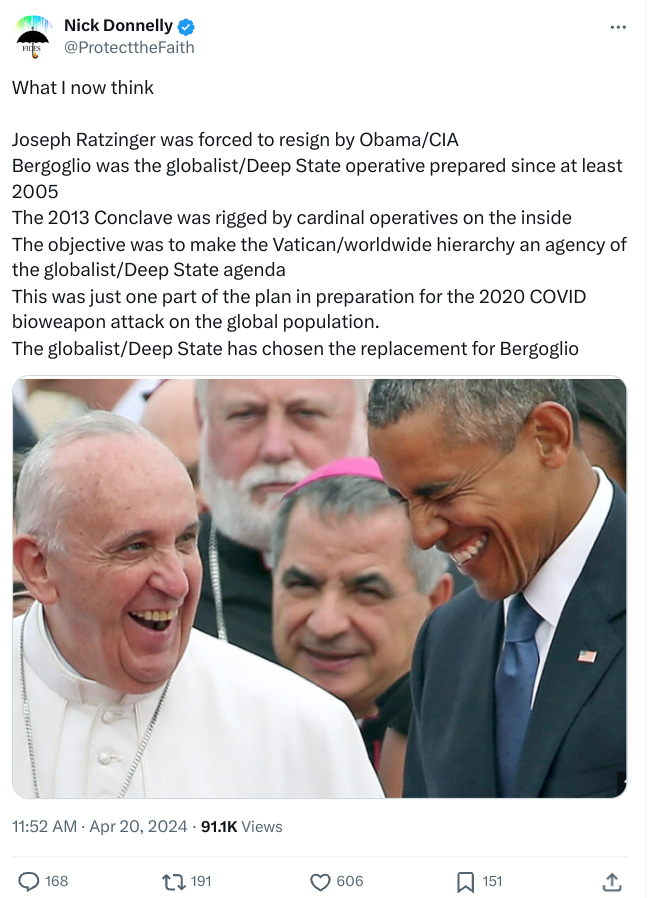THE CAMP OF THE SAINTS (Le Camp des Saints) By Jean Raspail CHAPTER THIRTY SIX
Thirty-six
Clément Dio looked at his watch for the hundredth time. Ten minutes to midnight. It was five hours now since the last drunken
songs had died down, petering out to the frequent thump of a body laid low by liquor and fatigue. But one of the thugs must have held
out much longer, because at ten o’clock, or thereabouts, Iris Nan-Chan had uttered another feeble groan. At first, when it all began, she
had let out a few quick screams, moments after her husband had been locked in that fourth-floor toilet where he lay now for more than a
day and a half, in a state of exhaustion bordering on stupor. Then she had cried out again and again, but her cries couldn’t cover the
raucous guffaws of the men ganging round her, downstairs in the bar. Then she had begged, and snatches of her pleas had reached Dio’s
ears whenever the chorus of vile, drunken voices would stop for a moment. As time went by, she had started to laugh—no doubt they
had forced her to drink—and the strange, unearthly sound of her laughter had stabbed Dio square in the heart, transfixed him, all but
lifeless, on the cold toilet floor, eyes dry, no tears left. During the last few hours of the nightmare, her laughter had died away, gasp by
gasp, and had turned to that low, plaintive groan that Dio could hear so clearly once the din had subsided. Like a hurricane, blown out, at
last, from its savage excesses. And no other sound had troubled that deathly silence. Except for a column of trucks, rumbling by toward’
eleven, speeding down to the sea. (Most likely those marine commandos from the La Faye Pass, heading south to take up their
positions…) Ten minutes to midnight. Dio heard footsteps on the stairs, then in the corridor leading to his prison …
And yet, things had all started out so well, despite the sarcastic warnings of that commando captain. To be sure, in Saint-Valuer
their car had been stopped in front of the hotel. But only because it was red and shiny, covered with chrome, all studded with lights and
bristling with antennas, and upholstered in leather. An elegant object, something the poor unfortunate prisoners could feast their hands
on, too long deprived of all contact with refinement. Dio had introduced himself. Many knew who he was. His radical penal reform
campaigns, waged with so much success, had made him a rather well-known figure in most prison circles. They had even recalled his
famous editorial, the one that had shaken penology to the roots:
“From my point of view, our civil offenders are really no more than political prisoners, innocent victims of a social system that first
destroys them, then refuses to save them, turning its back as they languish in disgrace. No one of us can be sure that he won’t land in
prison. Today more than ever, as the police web tightens its hold on our lives. We’re told that the prisons are all overcrowded. But isn’t
the worst prison really our life outside?” After cheers and hurrahs, they had offered him a drink, a toast to their freedom. He and his wife
had played right along. It was all quite amusing. Of course, a few of the men had already drunk too much, especially some of the Arabs
and blacks, and the bar was a mass of puddles and stains, strewn with broken glass and bottles. But the mood was good-natured, like a
Bastille Day of sorts, only this time a Bastille had really been taken. “Tell me,” Dio had asked, glass of rum in hand, “how did you
manage to take the place over?” It was easy to explain. The Ganges fleet was the why and the how behind the operation. It was all they
had talked about while they were in prison. They had read every line. They had stuck their pin in the map every night. And sometimes
the chaplain would join them, and lead the discussion, which was part of his job. For him the fleet was something of a symbol, “a kind
of mass messiah with a million heads,” he called it. A symbol the prisoners could readily accept, set apart as they were, and easily
moved. In time, the atmosphere seemed almost devout. So strange, in fact, that the poor, confused guards, superstitious at best, hardly
stirred from their lairs, skulking out like frightened shadows to tend to the barest essentials. It was then that it happened. And all terribly
simply. At the end of the Good Friday vigil, while the guards were still sleeping in their quarters, letting their worthy charges do
likewise, none other than the chaplain had flung open the gates, with the comment that Christ may have died for all men, but for thieves
first and foremost…. “He always said he would do it some day, but it still sure was a surprise! God knows where he is right now! I’ll tell
you one thing though. If that crowd ever lands, there won’t be one prisoner behind bars, believe me …” Then they had chatted. About
this and that. About society, for instance, and how “fucked up it all is.” About “filthy rich bourgeois pigs,” and workers brutalized by
their machines. And the more the men drank, the louder they got. But why not? They had been reborn, and a little excitement seemed
perfectly in order. “Take me, for instance,” one fellow explained. “I had to make a choice. Either bust my balls on some job for forty
more years, or take a chance on three minutes in the big time, and maybe hit the jackpot. Well, I gave it a try and I lost, so I got put
away. Damn right society’s all fucked up!” And the same one, an hour later, drunk and ugly:
“Come on, guys, what do you say! This is no goddamn fun. Too damn much talk. Let’s have a ball. You know what I mean, guys?
Let’s have a ball! Like, first we’re going to dance!” He leered at Iris Nan-Chan. “Right, baby?” It was hardly the moment to beat a
retreat. She was caught in the middle, with pairs of groping hands all fighting for her favors. They tugged her between them. Her dress
was ripped to shreds. Dio struggled to reach her, tried to elbow through the pack. “Listen, you!” one of them shouted. “Talk about filthy
bourgeois pigs! Did you guys see the car this bastard was driving? You think he gave a damn about us? Bullshit, he did! He was selling
his goddamn paper, that’s all. Just using us to fill his pockets. Now it’s our turn, right? Come on, baby, one at a time!” A few of the men
tried to stem the tide. But the rest of them beat the “revisionists” back. Maybe because there weren’t very many. At which point Dio was
kicked up four flights, and dragged into the toilet …
The footsteps stopped in front of the door. Dio heard the key turning. The man standing there still seemed drunk, but at least he was
awake. “You can come out of there,” he mumbled, none too sure of himself. “The party’s over.” Then he thought for a moment, and
added: “I guess maybe I should say we’re sorry. We shouldn’t have locked you up like that. Not guys like us, I mean, who know what
it’s like. But you’ve got to understand. When the shoe’s on the other foot, like they say… Anyway, your wife’s downstairs. I guess
maybe we were kind of rough at the beginning. But she’s still in one piece, don’t worry. She’s sleeping. We gave her a good stiff drink.
After that things calmed down … Well I mean, I never touched her myself …” And he left.
The hotel reeked of wine and tobacco, and stank of stale vomit. Most of the windows were smashed, no doubt by the bottles thrown
through them. In the rooms, doors flung wide, men were flopped on the beds, on top of the covers, snoring, dead to the world. Dio
picked his way over the landing, over bodies lying asleep where they had fallen. A radio still blared out a concerto. The last drunkard to
fall hadn’t thought to turn it off before biting the dust. Dio found Iris Nan-Chan at the bar, just where he had left her. She was sleeping,
naked, stretched out on a bench. Someone had thrown up all over her chest. Someone else must have covered her, waist down, with a
cloth from a dining-room table. She was sleeping very Soundly. As if she had swallowed a whole bottle of pills. Which, in fact, was just
what she had done. The vial of barbiturates lay empty at her feet…. All of a sudden, the concerto stopped short. In the studios no One
cared much anymore about smooth transitions Then a voice:
“We bring you now an address by the President of the Republic …”
Midnight. And that was how, on Easter evening, Clement Djo found himself listening to the message that the whole world was
waiting to hear.








Comments
Post a Comment